News
|
 |
Nuclear risks grow as new arms race looms—new SIPRI Yearbook out now
On 16 June, SIPRI launched its annual assessment of the state of armaments, disarmament and international security. Key findings of SIPRI Yearbook 2025 are that a dangerous new nuclear arms race is emerging at a time when arms control regimes are severely weakened, with nearly all of the nine nuclear-armed states continuing intensive nuclear modernization programmes in 2024, upgrading existing weapons and adding newer versions.
Read more | Read the summary of SIPRI Yearbook 2025 | Read the introductory chapter | Read the sample chapter on world nuclear forces
|
|
 |
SIPRI hosts workshop on nuclear disarmament education
On 11 June, SIPRI experts hosted a workshop in their capacity as co-leaders of the Alva Myrdal Centre for Nuclear Disarmament working group on nuclear disarmament in policy and international law. A group of researchers, experts and educators active in the field of nuclear issues came together in Stockholm to explore the current state and future of nuclear disarmament education.
Read more
|
|
 |
SIPRI co-convenes expert panel on trade in spyware and other cyber-surveillance tools
On 10 June, SIPRI organized a webinar on the proliferation and misuse of spyware and other cyber-surveillance tools, bringing together experts and stakeholders from government, industry and civil society. The virtual meeting presented preliminary findings from a study on the role of export controls and sanctions in addressing these challenges, conducted by SIPRI in collaboration with the Open Society Foundations.
Read more
|
|
|
Upcoming events
|
Leadership and human security at a time of war
20 August 2025 | Stockholm
On 20 August, SIPRI will host a diverse group of leaders in Stockholm for a conversation on people-centred approaches to security, their potential to address systemic challenges and the urgent need for new ideas and partnerships in pursuing peace, protecting civilians and preventing conflict.
Register
|
|
|
Recent events
|
SIPRI co-hosts conference on Central Asia
12 June 2025
Hosted in Stockholm by SIPRI and the International Tax and Investment Center, this event explored the prospect of regional integration and cooperation in Central Asia. Experts and policy representatives discussed updated frameworks for analysis and political action, with the aim of better understanding the present and future direction of the region.
Read more | Watch the recording
|
|
|
|
|
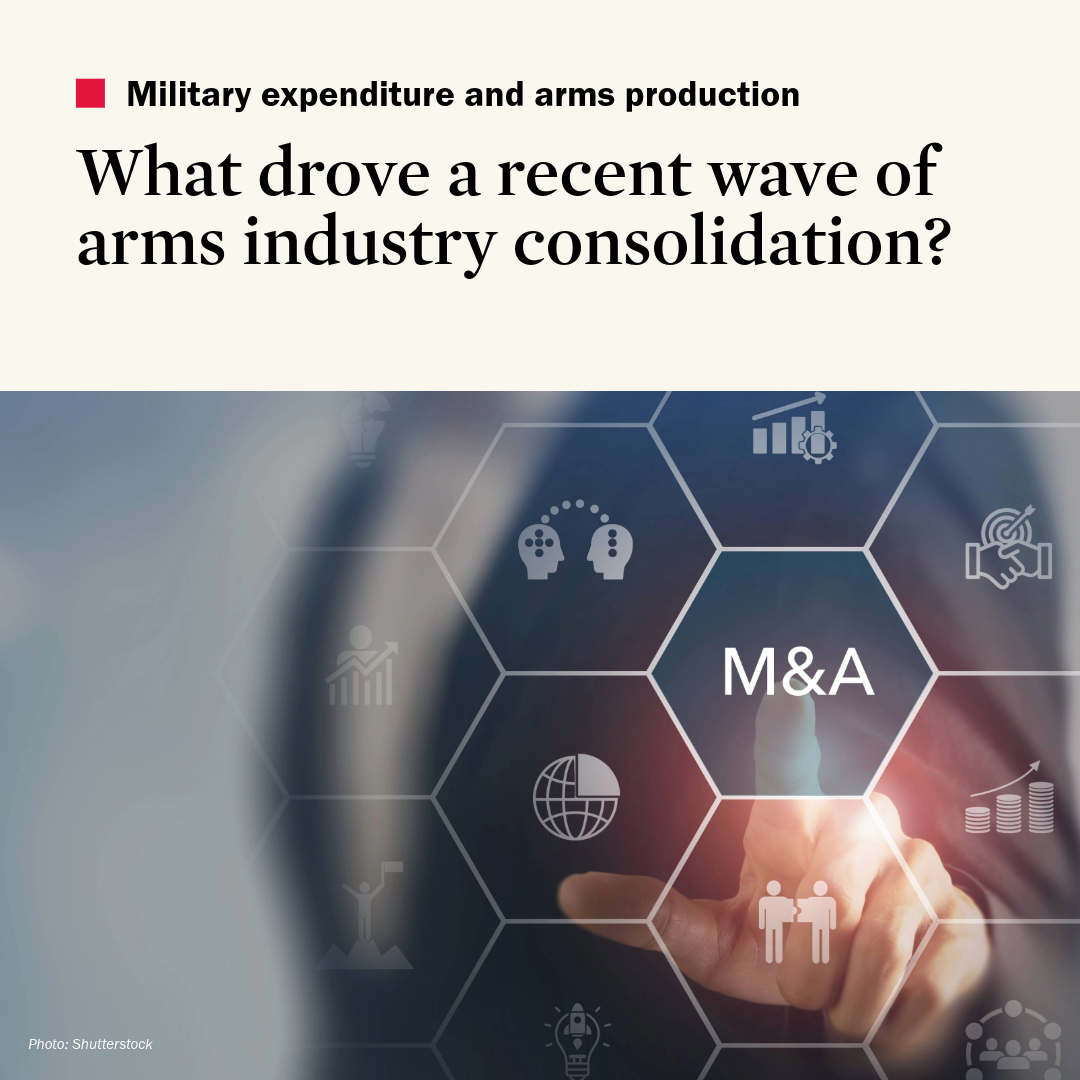 |
What drove a recent wave of arms industry consolidation?
Consolidation within the arms industry has historically been influenced by a combination of three factors: shrinking demand, lack of competitiveness and the political will of governments. Between the height of the Covid-19 pandemic in 2020 and the start of Russia’s full-scale invasion of Ukraine in February 2022, the annual numbers of European and North American companies in the SIPRI Top 100 Arms-producing and Military Services Companies that carried out mergers and acquisitions were significantly higher than at any time since 2014. This backgrounder investigates the circumstances behind this wave of consolidation.
Read the SIPRI Topical Backgrounder
|
|
 |
SIPRI experts were recently featured in these external outlets:
-
‘Libya’, Alaa Tartir and Amal Bourhous, to be published in The Sage Handbook of Peace and Conflict Studies, eds Maia Carter Hallward, Ji Eun Kjim, Cécile Mouly, Timothy Sidel and Zubairu Wai, in July 2025.
-
‘Die zukunft der NATO: Frankreichs hinwendung zu Europa’, Barbara Kunz, published by Friedrich-Ebert-Stiftung in June 2025.
-
‘Following Israeli attacks, Iran and other Gulf states could prevent endless war through regional non-proliferation cooperation’, Tytti Erästö, published by Pathways to Renewed and Inclusive Security in the Middle East as part of the SALAM Project in June 2025.
-
‘Interconnected futures: Towards a New Pact for the Mediterranean’, Charlotta Sparre, published by EuroMeSCo in June 2025.
-
‘Cybersecurity for a sustainable future’, Fei Su, published by SEB Group in June 2025.
-
‘Foreign aid composition and sustaining peace after war’, Abeer Ahmad, Jannie Lilja, Tobias Lindé and Gary Milante, published in the Journal of Peacebuilding & Development on 19 June 2025.
-
‘Shrinking space for Palestinian civil society’, Alaa Tartir, published by the Geneva Graduate Institute on 11 June 2025.
-
‘From tactical to strategic: The DPRK–Russia military cooperation’, Fei Su, published by the Asia-Pacific Leadership Network on 11 June 2025.
-
‘Navigating the dual-use dilemma: Open access to research drives innovation, but how can we avoid unintended consequences?’, Vincent Boulanin and Ludovic Righetti, published by IEEE Spectrum on 10 June 2025.
-
‘Can France lead? European security in times of transatlantic crisis’, Barbara Kunz, published by the Finnish Institute of International Affairs in May 2025.
|
|
|
Publications
|
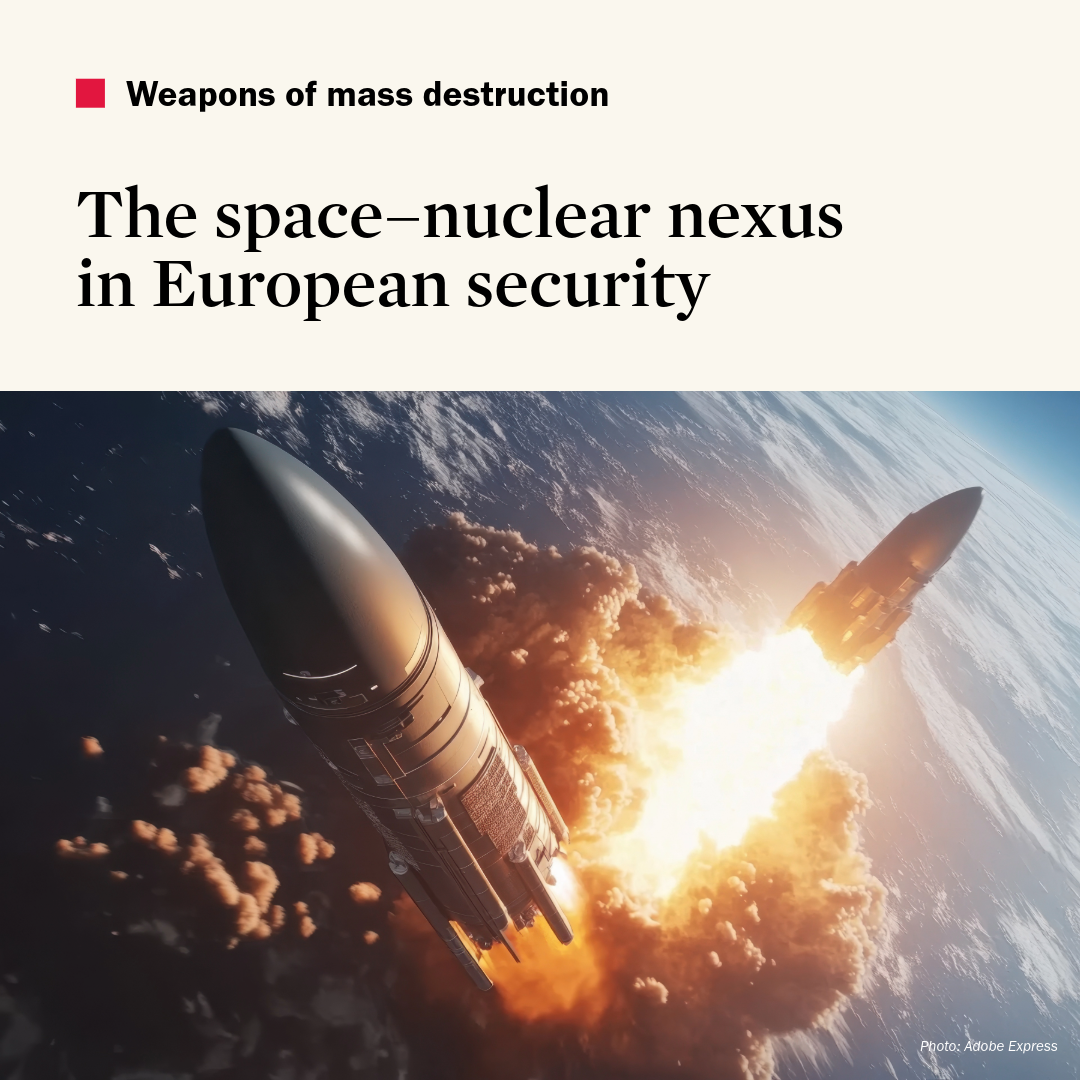 |
The Space–Nuclear Nexus in European Security
The space–nuclear nexus is prominent in today’s European security environment, amid shifting alliance dynamics and developments in Russia’s war in Ukraine. This report compares the dependencies, priorities and strategic cultures of various actors in the space and nuclear domains, including the North Atlantic Treaty Organization (NATO), the European Union (EU) and their three nuclear-armed states, as well as Russia. Analysing the destabilizing effects of alliances and partnerships and how they can shape escalation risks at the space–nuclear nexus, this report proposes a series of escalation management measures to curb these risks.
Read the report
|
|
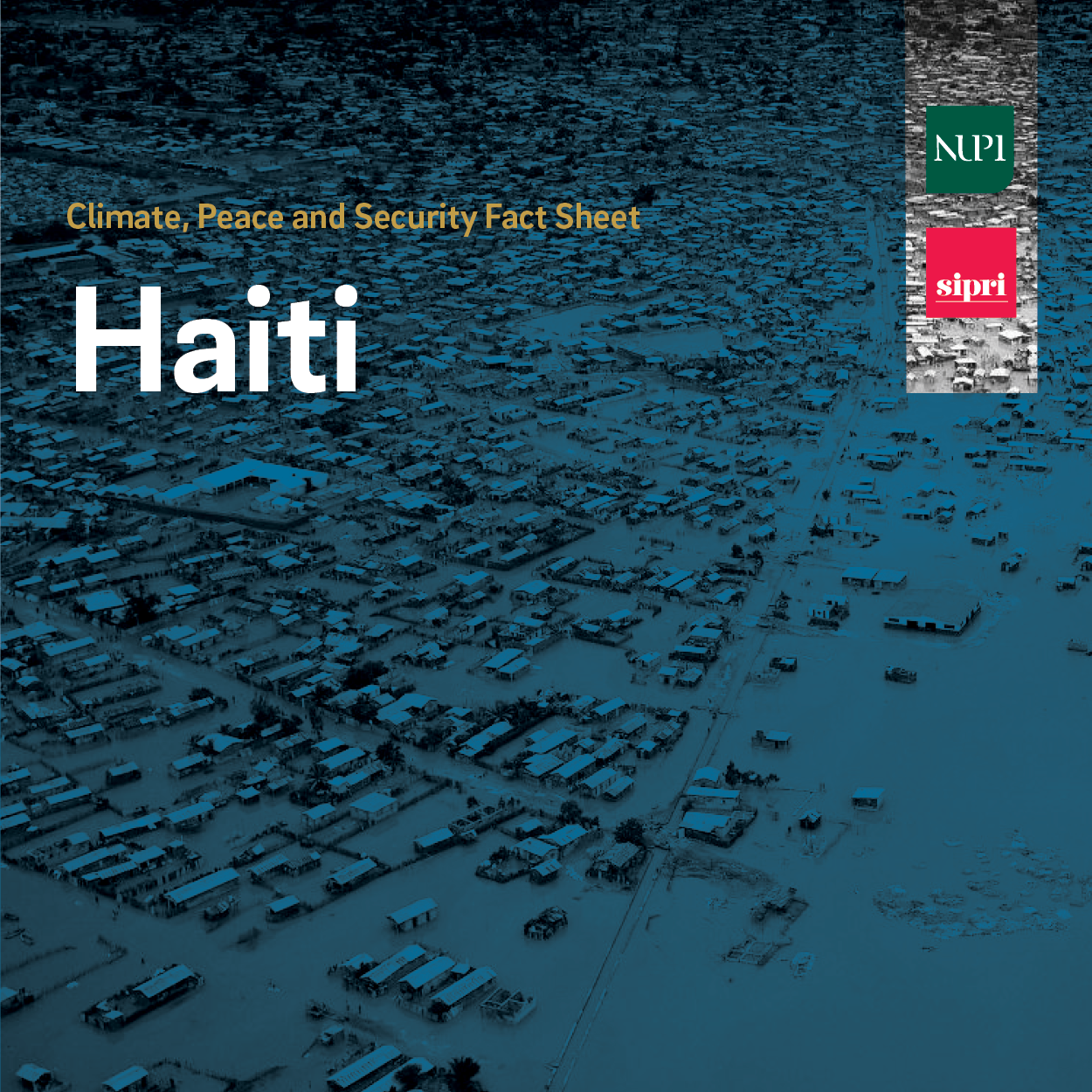 |
Climate, Peace and Security Fact Sheet: Haiti (2025)
Located on the Atlantic hurricane belt, Haiti is particularly vulnerable to the adverse impacts of climate change due to its geographical location as well as political instability, extreme poverty and gang violence. Natural hazards have exacerbated the humanitarian crisis, worsening displacement, social tensions and food insecurity. This Climate, Peace and Security Fact Sheet published by SIPRI and the Norwegian Institute for International Affairs (NUPI) examines the conflict- and climate-related issues facing Haiti, offering a series of recommendations for the international community to address them.
Read the SIPRI–NUPI Fact Sheet
|
|
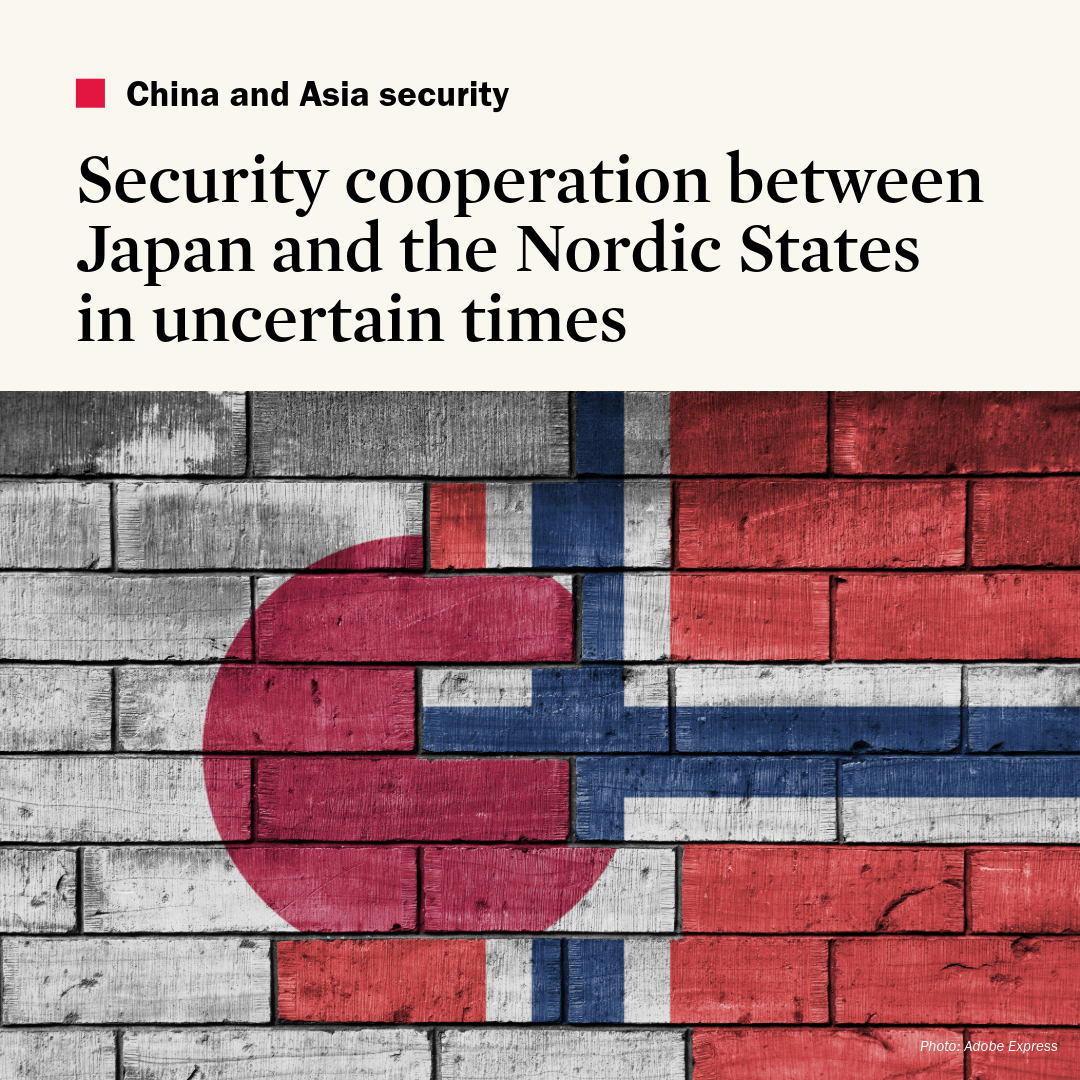 |
Security Cooperation between Japan and the Nordic States in Uncertain Times
Since Russia’s full-scale invasion of Ukraine in 2022 and amid rising geopolitical tensions, Japanese and Nordic security concerns have increasingly converged. In recent years, security cooperation between the two regions has expanded through bilateral initiatives and within broader frameworks such as the EU and NATO. This SIPRI Policy Brief explores the trajectory, limitations and possibilities of Japanese–Nordic security cooperation, providing recommendations for how this cooperation can serve shared interests in enhancing regional and global security.
Read the SIPRI Policy Brief
|
|
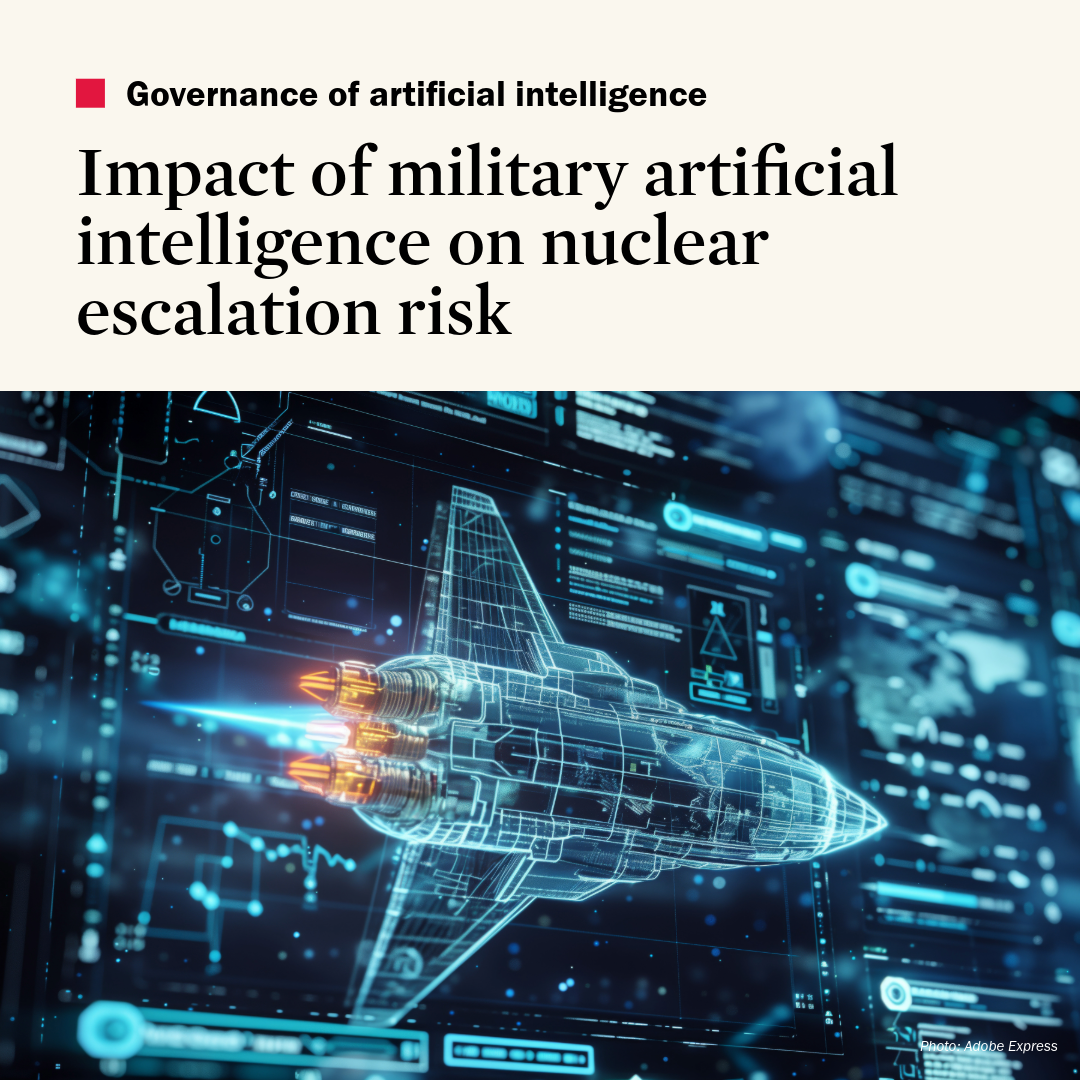 |
Impact of Military Artificial Intelligence on Nuclear Escalation Risk
Increasing integration of artificial intelligence (AI) into military systems has the potential to influence nuclear escalation even when that integration occurs outside nuclear weapon systems. This SIPRI Insights Paper explores the fundamental question of whether such uses of AI introduce new risks, exacerbate existing ones or fundamentally alter the nature of nuclear escalation, as a first step towards developing a more comprehensive understanding of nuclear escalation dynamics and designing effective de-escalation and risk-reduction measures.
Read the SIPRI Insights Paper
|
|
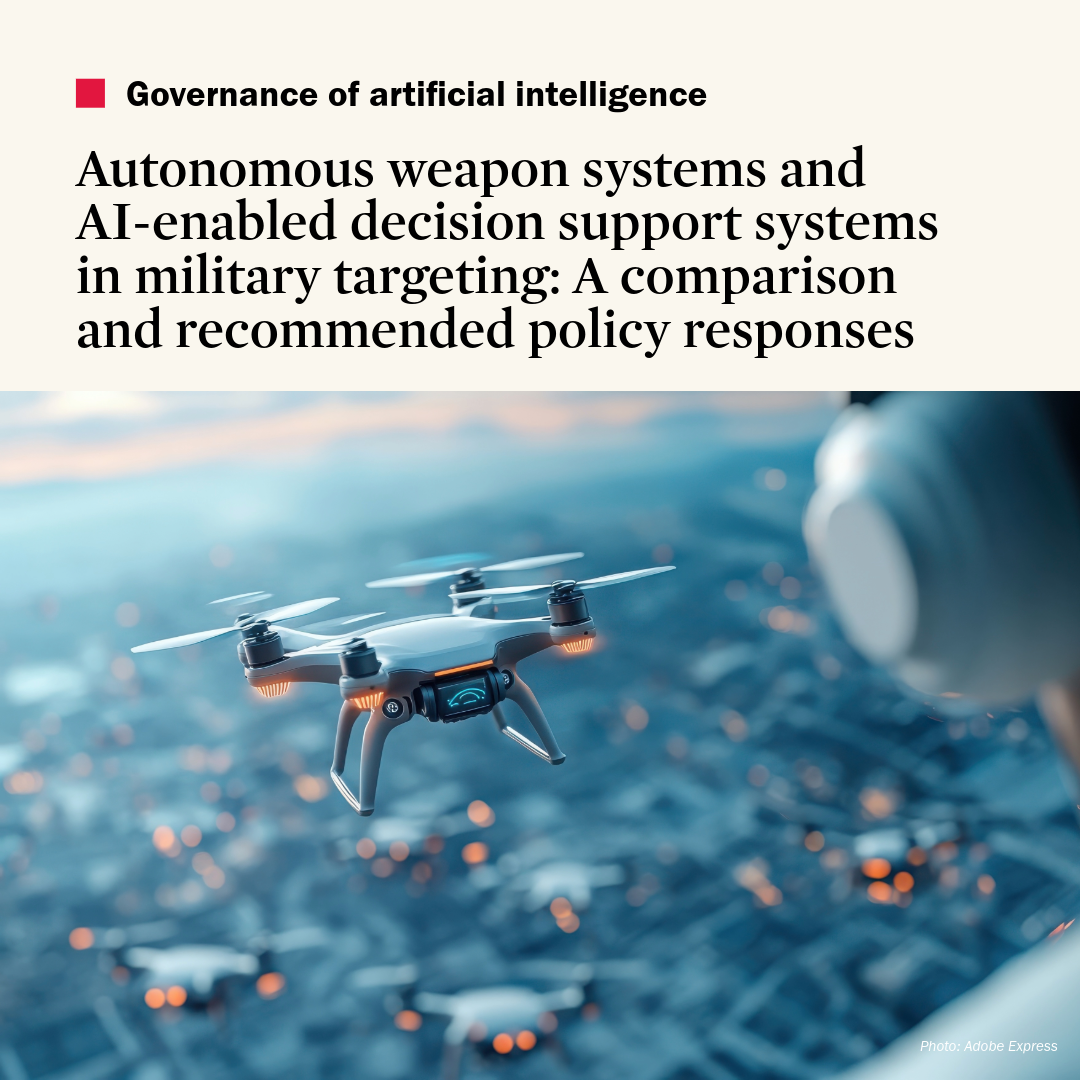 |
Autonomous Weapon Systems and AI-enabled Decision Support Systems in Military Targeting: A Comparison and Recommended Policy Responses
The humanitarian and legal concerns raised by autonomous weapon systems (AWS) have long been the subject of international policy processes. Growing attention to the military use of AI-enabled decision support systems (AI-DSS) raises the need to consider how these systems fit within global policy conversations. This report compares AWS and AI-DSS for targeting in terms of their respective characterization, risk of unintended harm, legal aspects and policy responses, making a number of key findings to inform policymakers.
Read the report
|
|
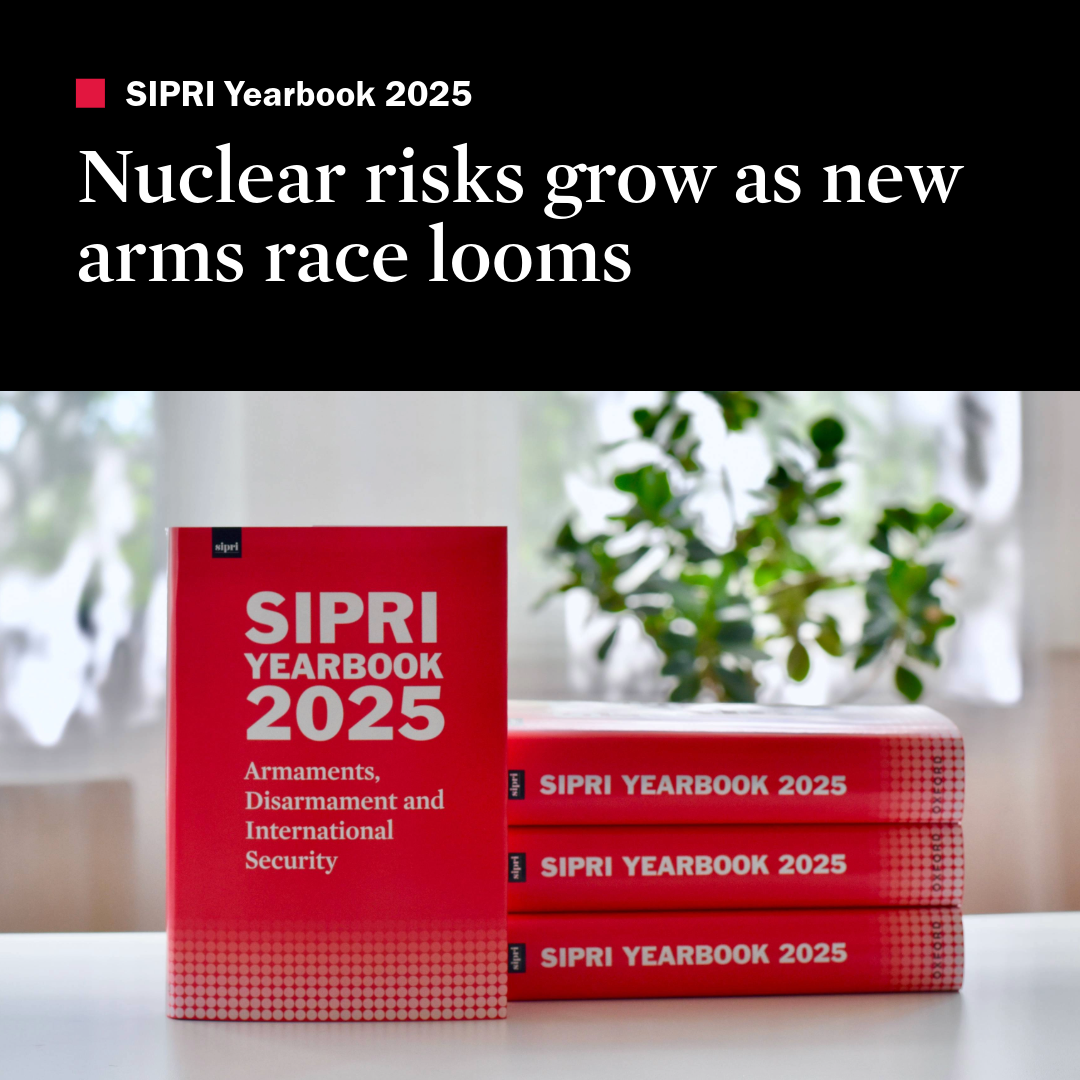 |
SIPRI Yearbook 2025
The SIPRI Yearbook presents a combination of original data in areas such as world military expenditure, international arms transfers, arms production, nuclear forces and armed conflicts with state-of-the-art analysis of important aspects of arms control, peace and international security.
SIPRI Yearbook 2025, which is the latest edition and covers key developments in 2024, includes:
- detailed coverage of nuclear arms control and non-proliferation issues;
- insight on developments in conventional arms control;
- regional overviews of armed conflicts and conflict management;
- in-depth data and discussion on military expenditure, international arms transfers, arms production and world nuclear forces;
- analysis of the growing proliferation of missiles and uncrewed aerial vehicles;
- a focus on international governance of artificial intelligence, cyberspace and space security; and
- comprehensive coverage of efforts to counter chemical and biological security threats.
Browse the contents page | Download the summary (PDF) | Download the sample chapter on world nuclear forces (PDF) | Download the introductory chapter (PDF) | Order SIPRI Yearbook 2025
|
|
|
|
Accurate, dependable information is more important than ever. Invest in the facts.
Support SIPRI
|
|
 |
| SIPRI is an independent international institute dedicated to research into conflict, armaments, arms control and disarmament. Established in 1966, SIPRI provides data, analysis and recommendations, based on open sources, to policymakers, researchers, media and the interested public. |
|
|